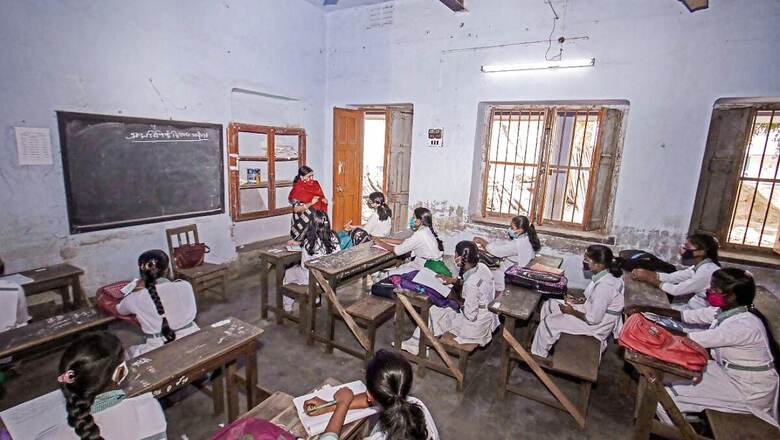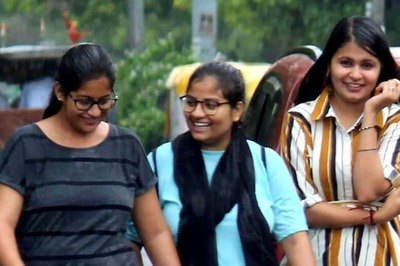
views
The Delhi government’s recent decision to constitute its own school board of education to ensure holistic development through proper assessment is laudable. The government also said that it will give emphasis to all-year-round learning.
Currently, there are about 1,000 government schools and 1,700 private schools in Delhi which are mostly affiliated to the Central Board of Secondary Education (CBSE) and their students appear for CBSE exams. Initially, the process will be slow and only a few government schools will be affiliated to the proposed Delhi Board of School Education (DBSE). Subsequently, all government and private schools of Delhi will be affiliated to DBSE.
So to begin with, both the state and national board will function simultaneously in both government as well as private schools. I think both the systems may continue to run in the future, as seen in many other states, and schools and parents may be provided a choice between the two boards. If we look back, Delhi government in the past too has tried to get its own board but the idea did not materialise because of strong resistance from parents and as well as the private school system. Delhi has a good number of reputed private schools and students graduating from these schools have excelled not only in the country but also globally.
ALSO READ| The Delhi Board of School Education Makes a Pitch for Fanatic Deshbhakts
Thus, the decision of the Delhi government though path-breaking comes with huge challenges. First of all, we need to ensure that it does not become yet another board, adding to more than 60 school education boards in the country. It must be ensured that the proposed DBSE becomes, like all reputed international boards, a self-financed autonomous body in true sense and not just a government department or directorate.
The foremost challenge is to make it an educational body and not a mere examination body as enunciated in the report prepared by Professor Amrik Singh committee, which was constituted after 1986 education policy.
The issues of quality and excellence are the two most important dimensions in school education. The process of education, in a formal context, can be perceived as a continuum having three major stages—curriculum design, curriculum transaction and curriculum evaluation. A school board must have a close look at all the three stages and not entrusted with the tail end.
A school board has to brace for other challenges too:
# Newly emerging knowledge fields necessitate broad-based curriculum package by providing wider choices for learners.
# Rapid rate of obsolescence of knowledge calls for a more effective process of updating curriculum on a regular basis.
# Coming out from repetitive, regulative and restrictive mindset and embracing more open-ended approach.
# Making the curriculum technology compatible by including multi-media delivery mode.
# Presenting curriculum in a framework that encourages experiential approach to learning.
# Finding ways to respond to emerging concerns in assessment and make it reliable, credible and student-friendly.
All these are part of the new National Education Policy. In addition to these, there are challenges of ensuring employability skills among students.
The national boards have done pretty well in ensuring quality education to date, but with huge variables both in terms of number of schools and students, they have their own limitations in ensuring uniformity across India, and may sometimes end up promoting mediocrity. It’s a classic example of ‘one size fits all system’ prevalent in the system.
ALSO READ| Delhi’s Education Board Will Prepare Children for a Fast-changing World
So, while welcoming the establishment of Delhi school board, I just wish it addresses the core issues and becomes a trendsetter board that others can follow. No top-down prescriptive model should be followed. It must also avoid the three bad Cs in school education—compulsion, competition and comparison.
No doubt, evaluation in its present form cannot be considered as the real measure of student’s potential because it continues to be predominately guided by principles and practices of the last century. It is still very content-based, highly structured, focuses primarily on cognitive domain, with marks being inflated through internal evaluation. Looking at all these aspects, the proposed board must start small but with a transformative mindset, and ensure that assessments are done through a good mix of summative and formative tests.
Read all the Latest News, Breaking News and Coronavirus News here




















Comments
0 comment